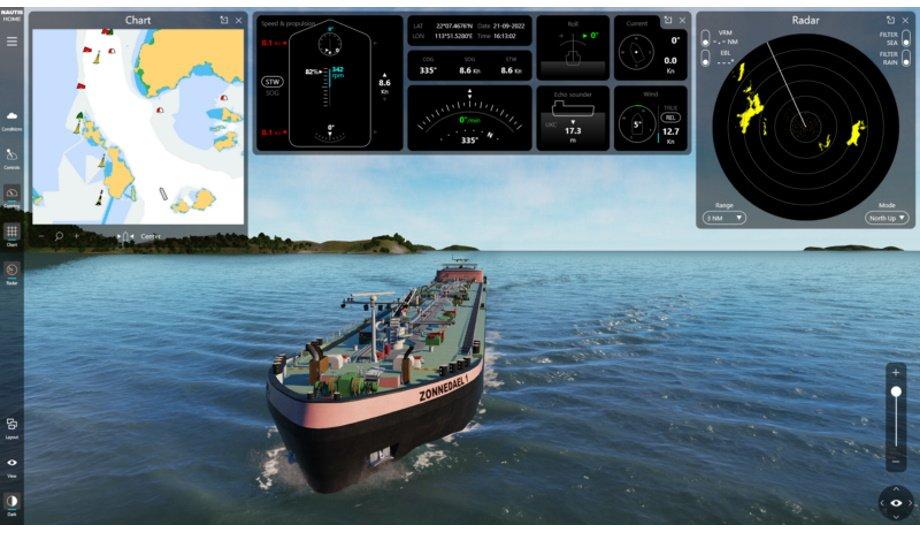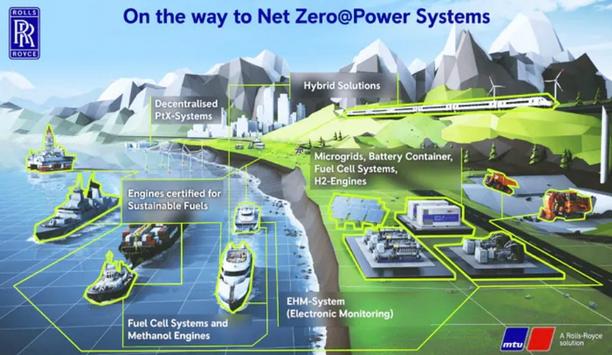Launching their newest maritime simulator - NAUTIS Home in 2022 was an important step for VSTEP to expand the accessibility of professional ship simulation. It is their goal to increase the crucial role of simulation-based learning in maritime education and training. They continue to build on this mission by facilitating a Learning Platform to leverage the training capabilities of simulators.
The rapid technological innovation in the maritime sector is driving maritime professionals and future seafarers to adapt and develop new competences aligned with industry standards.
Simulation-based learning in maritime training
We envision an even more vital role for simulation-based learning in maritime education and training"
Fabian van den Berg, the Chief Executive Officer (CEO) at VSTEP, said “We envision an even more vital role for simulation-based learning in maritime education and training. It has proven itself in other industries, such as aviation, and is essential for training in a safe environment in a sustainable manner.”
Fabian van den Berg adds, “Besides, simulation training is several times more effective than training on a real vessel at sea, which fosters the learning progress.”
NAUTIS Home - maritime simulation software
VSTEP already increased the availability of professional ship simulation by having released their latest maritime simulation software, NAUTIS Home. NAUTIS Home runs on a PC or laptop and allows for individual training and assessment facilitating self-study opportunities for maritime professionals.
“Expanding the accessibility of ship simulation increases the training opportunities for maritime professionals. This is important, since the current market with a shortage of qualified personnel demands continuous development of skills and competences,” stated Fabian van den Berg.
Seamless integration of learning content and simulation
Increasing accessibility to high quality ship simulation is only a part of the solution. VSTEP intents for a seamless integration of learning content and simulation, whether trainees train at home, onboard or on-site.
"Digitalisation of education is crucial," explains Tije Vos, Commercial Director at VSTEP, adding, “Through time we have seen the importance and ongoing trend of online learning and personalised learning in a variety of industries. The maritime sector should not stay behind.”
Therefore, simultaneously with the launch of NAUTIS Home, VSTEP launches their new learning management system to accommodate a variety of simulation-based learning styles.
Learning Experience Platform (LXP)
The LXP is their web-based platform that enables maritime organisations to manage their learning journeys
The Learning Experience Platform (LXP) is their web-based platform that enables maritime organisations and professionals to manage their learning journeys. Organisations can connect LXP to their current on-site simulator set-up or complementary NAUTIS Home simulator, in order to provide an accessible, flexible and integrated learning program for their professionals.
This way, the current training programme is scalable and allows an organisation to maximise utilisation of their current on-site simulator without a large additional hardware investment.
Learners are not limited to instructor-led sessions and can take ownership in their learning journey by self-studying and spend more hours training with simulation complementary to their on-site simulation training. Making them fully prepared for when they are onboard.
LXP - intelligently developed for a variation of training needs
LXP is intelligently developed for a variation of training demands and provides the coordination of learning on three levels. From a management perspective, organisation-wide performance can be tracked and used to detect learning gaps.
Instructors can create and offer their own courseware and track the trainee’s progress. Trainees create a learning passport, have insight into their own learning journey and can access simulation-based e-learning from home as well.
Competences development is a life-long process
“Competences development does not stop after a trainee graduated. With their personal learning passport and NAUTIS Home, maritime professionals can continue training throughout their career, providing them the opportunity to develop and train skills needed in this fast-paced sector.” explains Tije Vos.
Scalability and improved coordination of simulation-based learning is what is in demand. STC Next – a training provider for maritime professionals with its headquarters in Rotterdam, Netherlands – firmly believes in the importance of simulation-based education and training and is committed to the lifelong development of professionals.
Simulation-based training contributes to learning programmes
Simulation-based training contributes substantially to the learning programmes"
With their broad range of education and training courses for shipping, offshore, transport and hazardous substances, they are the leading training and knowledge institute in the maritime sector. Their expertise and take on maritime education fuels valuable collaborative discussions with VSTEP on what the future learning landscape will look like.
STC Next explains, “Simulation-based training contributes substantially to the learning programmes due to the active and effective hands-on nature of training. Besides, it is a great way to prepare for practical training and internships. By implementing simulation training on a larger scale, complex scenarios can be trained frequently where theory can immediately be brought into practice. This is not feasible on a real-life vessel in a safe, sustainable and cost-effective way.”
Cooperation between STC Next and VSTEP
With new EU directives, exams are competence oriented, which stresses again why being able to train these competences in as true to life settings as possible is necessary. Cooperation between STC Next and VSTEP is essential in preparing students for their future.
Enabling learning by simulation is the key in making maritime education and training future proof, which is why VSTEP continues to innovate their product portfolio around coordination, accessibility and scalability of simulation-based learning.



